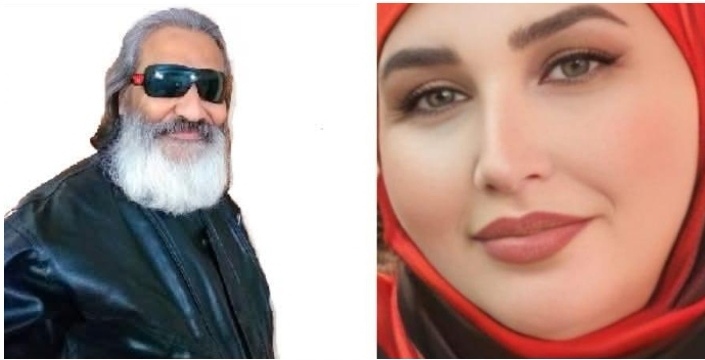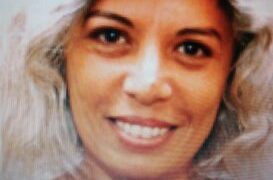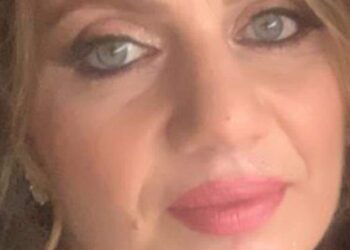Born in Palestine: The Voice of Poetry Confronting Pain and Injustice… Can a Poem Defeat a Bullet?
An analytical study written by the Lebanese-Brazilian poet and translator Taghrid Bou Merhi
In a time when the roar of guns grows louder and words choke in the throat of history, poetry rises from the ashes of destroyed cities and from the tears of terrified children to become the pure voice of the oppressed and marginalized. In his collection Born In Palestine, Indian poet Nilavronill Shoovro dedicates his words to all who have fallen or survived, to the exiled and the imprisoned, to the resistance fighters and newborns, to the women, men, and children of Palestine. These poems are living cries, frozen tears, an open protest against ugliness and injustice, and an undying call to life, never merely ink on paper.
This kind of poetry known as resistance poetry or liberation poetry, goes far beyond cold descriptions of tragedy, giving it a language, a form, and a voice. It is art that confronts death with creativity, betrayal with hope, and silence with a scream. It is poetry that rises when everything else falls, and keeps moving forward when speech fails. In every line, we find the pain of a nation, a mother’s cry, a child’s tear, a martyr’s will, and the promise of a homeland.
Resistance poetry is not a newcomer to human memory, it is the natural extension of the human spirit in its constant search for justice and freedom. Throughout history, poetry has been a means of survival, an instrument of refusal, and a voice to express anger and suffering. Just as it has been a carrier of love and peace, it has also borne the banner of struggle and steadfastness. In the heart of ruin, life still beats; in the midst of chaos, values endure; and the truthful word remains stronger than any weapon.
When we contemplate the table of contents of Born In Palestine, we find ourselves facing a series of vivid scenes where pain meets anger, and longing meets struggle. Titles such as “A Letter Under The Rubbles”, “Scattered Limbs”, and “Thousands Of Dead Children” place the reader directly in the heart of tragedy, without introductions or safe distance. These titles carry the scent of earth mixed with blood, the sound of collapsing walls, the wailing of widows, and the unanswered questions of children hanging in the air.
The poem “Born In Palestine”, which gives the collection its name, condenses the whole story, turning birth itself into an identity. To be born in Palestine means birth in the heart of embers, under the shadow of fear, in the face of constant threat, not simply the start of a life. It is a reality where time shifts in favor of the wound, where childhood becomes a test of survival rather than a time for dreams.
In “Children Of Palestine”, we hear the groan of stolen childhood, stripped of laughter and replaced with eyes aged by sorrow long before their time. In “200 Days Of Genocide”, the scene widens and sharpens, where numbers turn into faces, and time itself becomes an accomplice in the crime, each day adding a new layer of devastation.
From “In Palestine And Palestine” to “Stolen Land Of Palestine”, the duality of presence and absence, homeland and diaspora, truth and falsification emerges. These poems are not mere recordings of events, they are the poetic reshaping of history into a living testimony that will never die.
Titles like “Game Set And Match” and “Hypocritical Game” reveal biting criticism of the international community, as though the cause has been reduced to a political match played at the expense of innocent blood. In “Target Palestine” and “Dead-end”, we see a Palestine besieged, hunted from every side, yet refusing to break, remaining alive, pulsing with resistance, even on the edge of catastrophe.
Resistance poetry is the voice when all voices are strangled, the ink that screams when blood runs dry, and the memory that exposes the forgery of history. Through the ages, poetry has been a mirror of resistance from Homer, who immortalized heroism in the face of tyranny, to Pablo Neruda, who wrote for freedom against dictatorships, to Mahmoud Darwish, who made of Palestine a song for the world and of the poem a homeland.
Mahmoud Darwish, the most prominent Palestinian poet, fused identity with verse, making each text a human manifesto against occupation. In his poem “Identity Card” when he declared: “Record, I am Arab…”, he openly defied all attempts at erasure and exclusion.
And Nazım Hikmet, the Turkish poet who wrote behind prison walls, combined resistance and love, leaving the world with words that summarize hope in one line: “The most beautiful days, we have not yet lived.”
Born In Palestine remains more than just a poetry collection; it is a living heartbeat, a resounding cry against global silence, a poetic document that records open wounds, and a reminder that the truthful word can carve its path through rubble to reach the human conscience. Nilavronill Shoovro has infused his poems with blood and tears, making them not merely read, but felt and lived.
It is a great honor for me, Taghrid Bou Merhi, to write this analytical study of a work of such depth and sincerity, a work that reminds us that when poetry is genuine, it becomes a weapon, a homeland, and a memory that never dies. This book is a cry from Palestine to the world, declaring that truth does not age, pain cannot be erased, and that a poem may indeed defeat a bullet.
Born in Palestine: صوت الشعر في مواجهة الألم والظلم… هل تستطيع القصيدة أن تهزم الرصاصة؟
دراسة تحليلية كتبتها الشاعرة والمترجمة اللبنانية البرازيلية تغريد بو مرعي
في زمن تتعالى فيه أصوات البنادق وتختنق الكلمات في حلق التاريخ، ينهض الشعر من رماد المدن المدمّرة ومن دموع الأطفال المذعورين، ليكون الصوت النقي للمقهورين والمهمّشين. في ديوانه “Born In Palestine”، يهدي الشاعر الهندي Nilavronil Chovroo كلماته إلى كل من سقطوا أو نجوا، إلى المنفيين والسجناء، إلى المقاومين والمواليد الجدد، إلى النساء والرجال والأطفال في فلسطين. هذه القصائد هي صرخات حيّة، دموع متجمّدة، واحتجاج مفتوح على القبح والظلم، ودعوة لا تنطفئ إلى الحياة،
وليست مجرد حبر على الورق.
هذا اللون من الشعر، المعروف بالشعر المقاوم أو الشعر التحرري، يتجاوز حدود الوصف البارد للمأساة، ليمنحها لغةً وشكلاً وصوتًا. إنه الفن الذي يقابل الموت بالإبداع، والخذلان بالأمل، والسكون بالصرخة. إنه الشعر الذي ينهض حين يسقط كل شيء، ويواصل السير حين ينقطع الكلام. في كل بيت شعري نجد وجع أمة، صرخة أم، دمعة طفل، وصية شهيد، ووعد وطن.
وليس الشعر المقاوم طارئًا على الذاكرة الإنسانية، إنه امتداد لروح الإنسان في بحثه الدائم عن العدالة والحرية. عبر العصور، شكّل الشعر وسيلة للبقاء، أداة للرفض، وصوتًا للتعبير عن الغضب والمعاناة. كما كان حاملًا للحب والسلام، كان أيضًا حاملًا لراية النضال والصمود. في قلب الخراب تنبض الحياة، وفي أتون الفوضى تظل القيم راسخة، وتبقى الكلمة الصادقة أقوى من السلاح.
حين نتأمل فهرس قصائد “Born In Palestine”، نجد أنفسنا أمام سلسلة من المشاهد الحيّة التي تجمع الألم بالغضب، والحنين بالنضال. عناوين مثل:
“A Letter Under The Rubbles”، “Scattered Limbs”، “Thousands Of Dead Children”، تضع القارئ مباشرة في قلب المأساة، بلا مقدمات ولا مسافة أمان. إنها عناوين تحمل رائحة التراب الممزوج بالدم، وصوت انهيار الجدران، ونحيب الأرامل، وأسئلة الأطفال المعلّقة في الفراغ.
قصيدة “Born In Palestine” التي تحمل عنوان المجموعة تختزل الحكاية كلّها، وتحوّل الولادة نفسها إلى هوية. أن تولد في فلسطين يعني الميلاد في قلب الجمر، تحت ظل الخوف، وفي مواجهة التهديد المستمر، وليس مجرد بداية حياة. إنه واقع يتبدّل فيه الزمن لصالح الجرح، حيث تصبح الطفولة اختبارًا للبقاء لا للحلم.
في “Children Of Palestine”، نسمع أنين الطفولة المسروقة، تلك التي انتُزعت منها ضحكات اللعب واستُبدلت بعيون يعلوها الحزن قبل الأوان. أما في “200 Days Of Genocide”، فالمشهد أكثر اتساعًا ووضوحًا، حيث تتحوّل الأرقام إلى وجوه، والزمن نفسه يتحوّل إلى شريك في الجريمة، كل يوم يضيف طبقة جديدة من الخراب.
من “In Palestine And Palestine” إلى “Stolen Land Of Palestine”، تتجلّى ازدواجية الحضور والغياب، الوطن والشتات، الحقيقة والتزوير. القصائد هنا هي إعادة صياغة تسجيل الأحداث في ذاكرة شعرية تحوّل المعاناة إلى شهادة حيّة لا تموت.
كما تكشف عناوين مثل “Game Set And Match” و “Hypocritical Game”عن نقد حاد للمجتمع الدولي، وكأن القضية لم تعد أكثر من مباراة سياسية، تُدار على حساب دم الأبرياء. وفي “Target Palestine” و”Dead-end”، نرى فلسطين المحاصرة، المطاردة من كل الجهات، لكنها رغم ذلك ترفض الانكسار، تبقى حيّة تنبض بالمقاومة، حتى وهي على حافة المأساة.
الشعر المقاوم هو الحنجرة حين تُخنق الأصوات، والحبر الذي يصرخ حين يجف الدم، والذاكرة التي تفضح تزوير التاريخ. عبر العصور، كان الشعر مرآة للمقاومة، من هوميروس الذي خلّد البطولة في مواجهة الطغيان، إلى بابلو نيرودا الذي كتب للحرية في مواجهة الديكتاتوريات، إلى محمود درويش الذي جعل من فلسطين أغنية العالم ومن القصيدة وطنًا.
محمود درويش، الشاعر الفلسطيني الأبرز، مزج الهوية بالشعر وجعل من كل نصّ بيانًا إنسانيًا ضد الاحتلال. في قصيدته “بطاقة هوية” حين قال: “سجّل، أنا عربي…”، كان يتحدى علنًا كل محاولات الطمس والإقصاء.
أما ناظم حكمت، الشاعر التركي الذي كتب خلف قضبان السجن، فقد جمع بين المقاومة والحب، وترك للعالم كلمات تلخص الأمل في جملة واحدة:”أجمل الأيام، لم نعشها بعد.”
يبقى “Born In Palestine” أكثر من مجرد ديوان شعري؛ إنه نبض حيّ وصرخة مدوّية في وجه الصمت العالمي، وثيقة شعرية تؤرخ للجراح المفتوحة، وتؤكد أن الكلمة الصادقة تستطيع أن تشق طريقها وسط الركام لتصل إلى الضمير الإنساني. لقد منح Nilavronill Shoovro قصائده روحًا من دم ودمع، فجعلها تُحَس وتُعاش.
وإنه لشرف عظيم لي، أنا تغريد بو مرعي، أن أكتب هذه الدراسة التحليلية حول عمل بهذا العمق والصدق، عمل يذكّرنا أن الشعر، حين يكون صادقًا، يتحوّل إلى سلاح وإلى وطن وإلى ذاكرة لا تموت. هذا الكتاب هو صرخة من فلسطين إلى العالم، بأن الحق لا يشيخ، وأن الوجع لا يُطمس، وأن القصيدة قد تهزم الرصاصة.




















